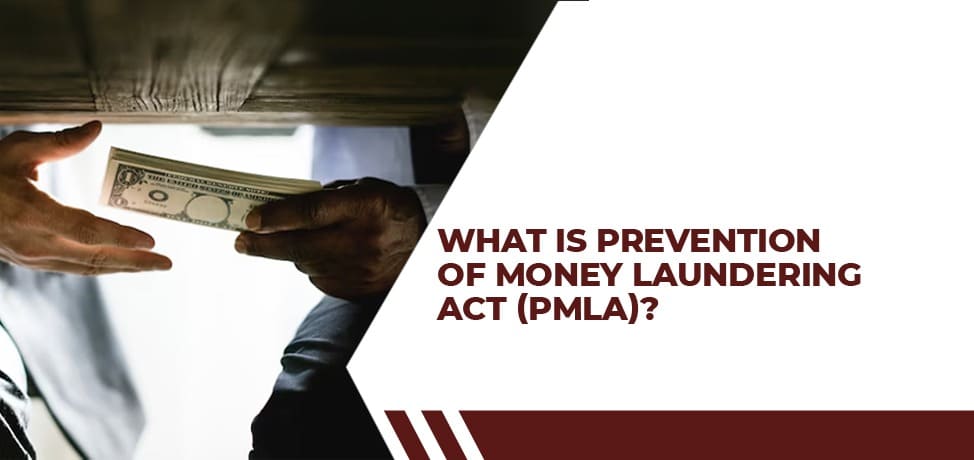
Prevention of Money Laundering Act (PMLA), 2002 enacted by the government of India to fight against the illegal properties acquired by the body entity. This law defines the criminal offence of illegally acquiring money or property. In conclusion, the process of converting illegally earned money into legitimate money is termed money laundering and the law which restricts money laundering is known by the name of Prevention of Money Laundering Act (PMLA). The primary objective of the Prevention of Money Laundering Act is to prevent and control the flow of illegal money or assets. PMLA restricts the process of converting black money into white money.
Delving into the article you will get to know detailed information about the Prevention of Money Laundering Act (PMLA). So, make sure to stay tuned till the end of the article for the best information about the PMLA Act.
Money laundering is defined as the process of converting black money or assets into white or legal assets. Money laundering involves the illegal way of obtaining money or assets and later turning them into legitimate money. This money or assets pass through various processes and channels to eventually reach a legally acceptable institution like a bank. Before the PMLA law, money laundering was a significant problem and every nation across the globe was looking for ways to restrict money laundering. This has defined a new law called the Prevention of Money Laundering Act (PMLA) having an objective to prevent the control of illegally earned money. It restricts any indirect or direct attempt to process any illegal fund.
The Prevention of Money Laundering Act has certain provisions to effectively impose the law of prevention and controlling of money laundering some of the provisions are highlighted below.
The PMLA Act imposes reporting obligations on different entities like banks, financial institutions, and intermediaries. These bodies are required to make reports of certain transactions including suspicious transactions to the FIU unit. All the transactions must comply with the KYC(know your customers) norms.
Violating the PMLA Act imposes certain punishments and imprisonment from 3 to 7 years and a reasonable fine for violating the Prevention of Money Laundering Act (PMLA). The punishment and fine depend on the type of crime and the money involved in it. If the crime involves money of more than 1 crore, the punishment may extend up to 10 years.
PMLA allows international cooperation to investigate and prosecute money laundering offences. Nations can sign an agreement with the countries for any legal assistance or exchange of information.
The Prevention of Money Laundering Act (PMLA) is an essential component of legislation aimed at preventing the flow of illegally earned money. The act prevents money laundering in India and acts as an instrument for detecting and prosecuting money laundering offences. If you want detailed information on the Prevention of Money Laundering Act, you must consult CA. Manoj K. Pahwa the best FEMA Consultant in Delhi , where the prominent experts will address all your queries and provide you with genuine information to easily combat the PMLA Act.